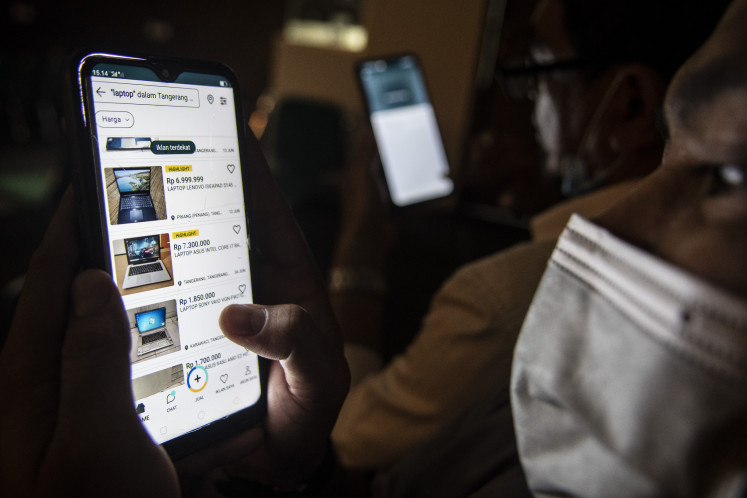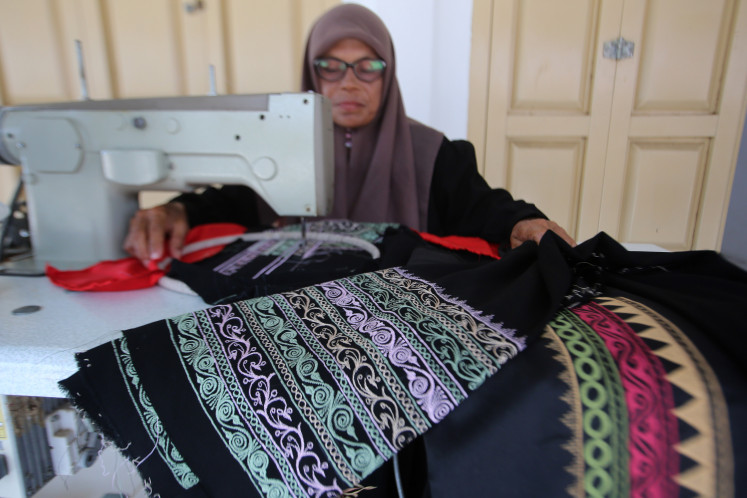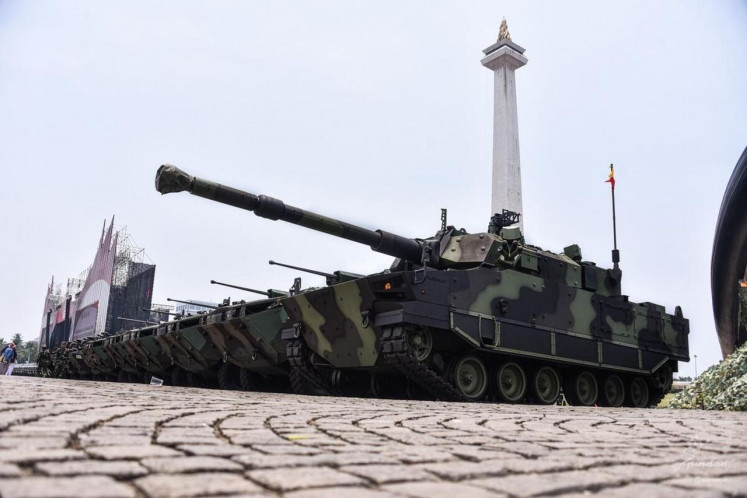Popular Reads
Top Results
Can't find what you're looking for?
View all search resultsPopular Reads
Top Results
Can't find what you're looking for?
View all search resultsIrman Gusman: Criminalizing the trade in influence
Change text size
Gift Premium Articles
to Anyone
E
ven though it is not the first time a leading political figure has been arrested in connection to graft, many people in Indonesia were shocked upon hearing the news of a sting operation by the Corruption Eradication Commission (KPK) that nailed Regional Representatives Council (DPD) Speaker Irman Gusman over the weekend.
Agus Rahardjo, the KPK chief, said investigators had confiscated Rp 100 million (US$7,600) from Irman. The money is believed to be a bribe he accepted for helping CV Semesta Berjaya, a West Sumatra firm, secure an increased quota of sugar imports this year.
Is there a direct correlation between the authority that Irman wields as DPD speaker and sugar import quotas?
No, there is no connection at all between the two. Irman as the leader of the DPD, which plays second fiddle in the country’s politics compared to the powerful House of Representatives, cannot change government policies or provisions and regulations issued by the Trade Ministry or the State Logistics Agency (Bulog) pertaining to sugar imports. Unlike the House, the DPD holds no legislative power. It only has advisory powers and those are limited to affairs related to regional autonomy.
Therefore, if Irman has no such power, how can the KPK build a bribery case against him?
In theory, this is not a bribery case, but rather a “trading in influence” case. In a nutshell, trading in influence is a condition where a person misuses his or her influence in the decision-making process for the sake of another’s interest after that person or company has influenced the decision-maker with money or other kinds of rewards in return for a favorable decision.
In the case of Irman, he is not the trade minister or the head of Bulog. But considering his position as a political figure, the leader of the so-called “Indonesian senators” and a man whose networks and connections are unlimited, it is difficult to deny that he holds real power.
And it is feasible that he could misuse this power to influence other agencies, including the Trade Ministry and Bulog.
Trading in Influence is regulated under Article 18 of the 2003 United Nations Convention Against Corruption (UNCAC). Even though Indonesia ratified the UNCAC in 2006, Indonesia has not classified trading in influence as a crime in its national laws. So, will Irman and others who trade their influence for money and benefits evade charges?
Actually, there are several cases of trading in influence that have gone to court under charges of bribery. One of them is the cattle import case involving the then president of the Prosperous Justice Party (PKS),
Luthfi Hassan Ishaaq, and party member Ahmad Fathanah.
The two were found guilty of accepting bribes after the KPK discovered they had used their influence to distort government policy on cattle imports.
At that time, the Agriculture Ministry, which plays a decisive role in the issuance of cattle import permits, was led by a PKS member.
State prosecutors and the panel of judges argued that the two defendants could influence cattle imports because, Suswono, the agriculture minister at the time, was a PKS member who was close to them.
The case generated debate among criminal law scholars. Some insist that it is illegitimate to convict a suspect of trading in influence, because it is violates basic principles of criminal law.
On the other hand, some other scholars contend that it is naïve to conclude that persons in positions of power, like political party leaders, cannot influence policymakers, change policies and exert his or her influence for personal gain.
Indonesia needs to criminalize the trade in influence sooner rather than later.
As long as trading in influence is not criminalized, figures who have access to policymakers and politicians will continue to practice it at will.
Middlemen, brokers or rent-seekers will continue to thrive and inflict losses on the state without the fear of legal consequences and people at large will develop a mindset that the practice is not haram.
Indeed, trading in influence harms society. How many pro-people policies will be, or have been, altered to serve the interests of perpetrators at the expense of the public at large?
_____________________________________
The writer is a researcher with the Indonesia Judiciary Monitoring Society at University of Indonesia’s School of Law in Depok, West Java.










